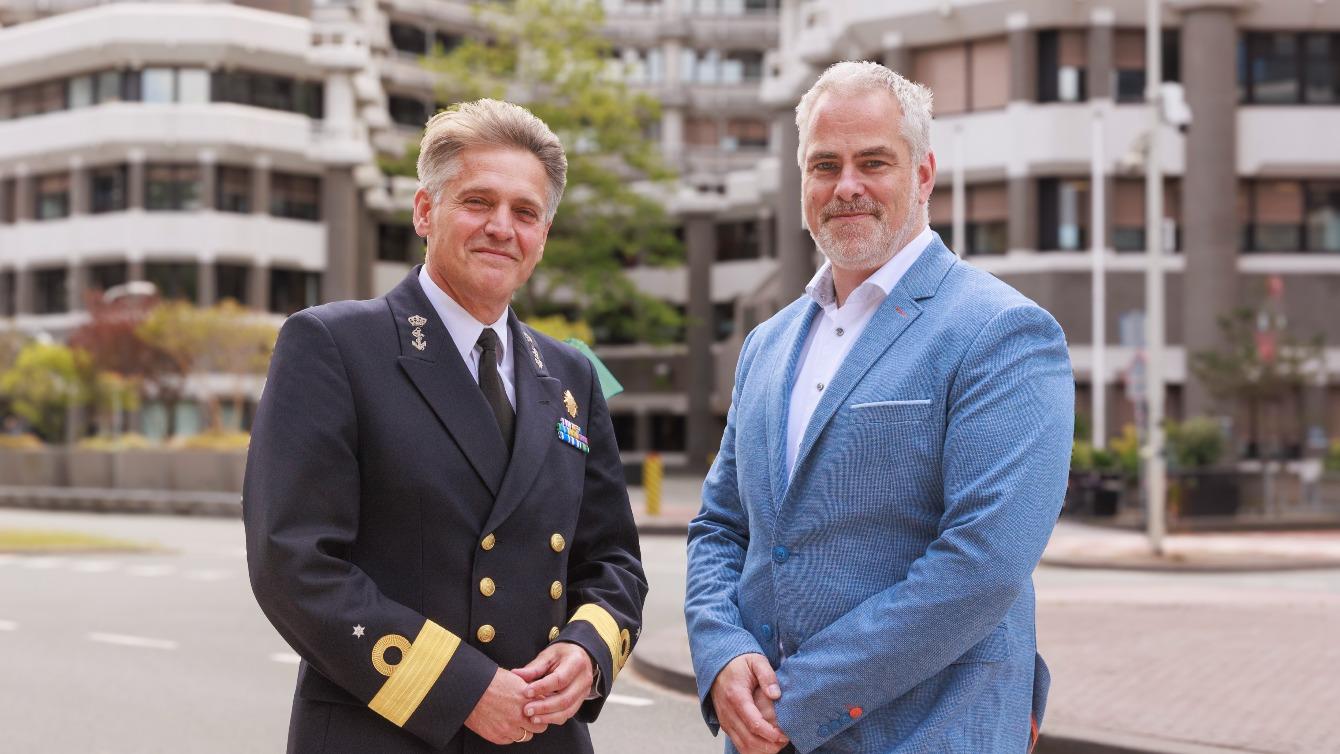After years of preparation, the Dutch Defence chose France’s French Naval Group as its supplier of four new submarines in 2024. The new submarines, Zr.Ms. Orka, Zr.Ms. Zwaardvis, Zr.Ms. Barracuda, and Zr.Ms. Tijgerhaai, will replace the Walrus class, ensuring the Netherlands is well-equipped for decades to come.
Strategic autonomy
Submarines are a complex and crucial system for the navy. In addition to their technological complexity and the delicate balance required in design specifications, they are also surrounded by geopolitical sensitivities. Kwak notes that when the replacement project started, “Strategic autonomy was just a catch-all term. Now you can't open a newspaper without coming across the word.”
The need for replacement arose during a period of Defence budget cuts, when efficiency was a key theme. As a result, it took years before a decision was made, Kwak recounts. “From about 2005 to 2015, we spent a long time circling the question: ‘Should we replace them at all?’ The discussion was influenced by the fact that the Netherlands had lost a lot of knowledge. “The expertise to independently design and build a submarine had largely disappeared. This meant replacement would call for extensive market exploration and external support from knowledge institutions and others.”
During this period, PwC was on board to support a cost-benefit analysis. The goal was to better understand what type of submarine would suit the Netherlands. PwC also helped with the selection of the logistics concept, and the design of the acquisition strategy to get “the best boat for the best price”. Based on the analysis, the formal decision to start an international acquisition was made in 2019.
‘The programme is pioneering in many respects. With PwC, we proved that you can execute complex programmes objectively and transparently’
Jurjen KwakCommander of Materiel and IT CommandA pioneer in technology, process, and governance
Kwak says, “The programme is pioneering in many respects—not only technically, but also in terms of process and governance.” He adds, “Together with PwC, we developed the methods needed to give strategic autonomy substance. This sometimes led to processes we later realised might have been simpler. But we did demonstrate that you can execute complex programmes objectively and transparently.”
The preparation for the acquisition involved a dialogue with potential suppliers aimed at jointly determining technical, contractual, and financial feasibility levels, explains Kurt Koevoets, a Senior Director at PwC. “My colleague Ilse Meier calls it ‘the great balancing act’. She was certainly the driving force in building the relationship with the market, while safeguarding commercial and operational interests.”
This demanded a meticulous way of working, centring on traceability, objectivity, and accountability as guiding principles. “In a large programme like this one, you have to be able to explain what you are doing and where the uncertainties lie,” says Koevoets. “Not just to each other, but also to the outside world—from candidate suppliers to the House of Representatives and supervisors like the Audit Service of the Central Government and the Court of Audit. We had enough colleagues on our team with strong analytical and structuring abilities to help Defence with this.”
This way of working sometimes seemed cumbersome to outsiders, but it was necessary for support and legitimacy. “It was a marathon with sprints,” says Koevoets. This meant there was no debate about the outcome of the process. “We received a lot of appreciation for our approach,” notes Kwak. “Even the parties that were not selected told us afterwards that they found the dialogue process pleasant and educational.”
Critical and pragmatic advice
The collaboration with PwC began well before the formal tendering process. A relationship of trust grew, in which pragmatism and critical reflection alternated. “I expect an advisor to not just provide extra hands, but also to bring knowledge and to challenge us,” says Kwak. “The ability to take on the role of a ‘critical friend’ is crucial. You have to dare to ask each other: ‘Is this really the best way? Can't it be done differently?’”
From design to construction and maintenance
With the choice for Naval Group in place, the programme has entered a new phase. The French specialist is now working on converting the design into a set of construction specifications. In parallel, preparations are underway to organise maintenance. Naval Group is responsible for the design, but Defence explicitly wants to be able to perform maintenance and modifications on the submarines.
The involvement of the Royal Netherlands Navy's own maintenance company as well as Dutch industry is an important factor, explains Kwak. “We want to, and must, keep the boat relevant for decades. This means we cannot become completely dependent. We aim to strike a healthy balance between doing things ourselves and having access to the necessary knowledge, rights, people, and resources in the Netherlands and across Europe.”
In this sub-project, PwC is serving as a bridge, Koevoets explains. “We are connecting the investment programme with the user and the maintenance service provider in Den Helder.”
‘PwC delivered scalability as well as reflection. They combined the best of both worlds: speed where possible, caution where necessary’
Jurjen KwakCommander of Materiel and IT CommandInvesting under pressure
The replacement programme is a perfect example of the complexity of large-scale defence projects today. They require investing in strategic capabilities under severe time pressure in a changing geopolitical context. The call for accelerating investments is resounding everywhere—within Defence, among politicians, in society, and in the international community. “Contracts have to be signed and systems delivered at a much higher pace,” says Koevoets. “But if you don't give the right amount of attention to the beginning of the process—to establish clearly what you really need—you can move fast early on, but you’ll get stuck later. Without a thorough understanding of needs and conditions, the foundation you build on will be less than solid.”
Kwak adds: “Pace matters, of course. At the same time, speed must never substitute quality. You have to keep thinking: What do we need, what should it be able to do, what do we want to be able to modify in the future? If you set the wrong KPIs—focusing only on lead time, for example—you’ll get what you asked for. Even if it doesn't work. And then you are worse off.”
This is why Kwak and his team in this programme opted for what he describes as “quality on time”: not one or the other, but both. This approach requires balancing pragmatism and thoroughness, speed and in-depth analysis. PwC helped shape this process, embedding accountability and ensuring pace without compromising on thoroughness. According to the programme director, this is exactly what makes partners like PwC valuable. “They bring scalability as well as reflection,” he observes. “They help you to speed things up, but they also make sure you occasionally pause and ask yourself: ‘Are we still doing the right things?’ They bring together the best of both worlds: speed where possible, caution where necessary.”
Contact us

















